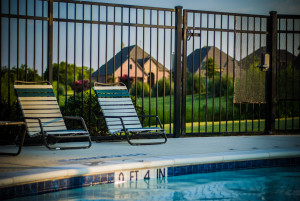Lawyers representing swimming pool accident victims in Maryland, Virginia, and Washington, D.C.
 Drowning is the leading cause of death for children 14 years of age and younger. Every year over 4,000 children go to the emergency room after suffering a near-drowning event and over 2,000 of them require further hospitalization. Even children who are strong swimmers can be susceptible to a drowning accident at an apartment, hotel, water park, or neighbor’s home.
Drowning is the leading cause of death for children 14 years of age and younger. Every year over 4,000 children go to the emergency room after suffering a near-drowning event and over 2,000 of them require further hospitalization. Even children who are strong swimmers can be susceptible to a drowning accident at an apartment, hotel, water park, or neighbor’s home.
State and local laws in Maryland, Virginia, and Washington, D.C. require proprietors of swimming pools to build and maintain adequate fencing around their facilities to ensure the safety of nearby children. Property owners and maintenance companies can be held liable if they fail to maintain fencing or follow these guidelines. Below are state level regulations for recreational swimming pool fences and gates in Maryland, Virginia, and Washington, D.C.
The Cochran Firm, D.C. represents victims of swimming pool accidents and the families of drowning victims. Our team of seasoned attorneys hold swimming pool operators responsible for failure to adhere to fencing and gate regulations – compliance with which may have prevented an accident or injury.
Maryland recreational swimming pool fence laws
- Recreational pool barriers must be at least 72 inches tall at with a latch located at least 54 inches from ground level
- Semi-public pools must have barriers at least 60 inches high with a self closing fence and latch
- Clearance between the bottom of the barrier and ground cannot be more than 4 inches apart
- Boards on picket fences may not be more than 4 inches apart
- Chain link fences may not have mesh openings greater than 2.25 inches
- Fences composed of vertical and horizontal members may not have openings greater than 1.75 inches
- Fences or barriers may not have decorative cutouts, openings, or footholds to make it easy to climb
- Wading or infant pools must have separate barriers at least 36 inches in height, have latches, and have no more than 2 inches of separation from the bottom of the barrier and the pool deck
Maryland recreational swimming pool gate laws
- Gates must be built at the shallow end of the pool
- Gates must swing open away from the pool area
- Gates must be at least 4 feet wide
- Latch must be at least 54 inches from the ground
- Latches must have locks and be capable of locking to prevent unauthorized entry
Virginia recreational swimming pool fence and gate laws
- Outdoor pools in Virginia must be enclosed by a fence at least 3 feet high
- Gates must be at least 3 feet high and made of material as substantial as the surrounding fence
Washington, D.C. recreational swimming pool fence and gate laws
- Outdoor pools must have fences at least 72 inches high and constructed of an approved material
- Entrances (gates) to pools through hotels, homes, and apartments must be self closing, self latching, and open away from the pool
- Gates must be at least 48 inches in height and the latch at least 45 inches from the ground
Local swimming pool fence and gate regulations for Maryland and Virginia
State laws in Maryland and Virginia make allowances for country governments to enforce their own regulations on swimming pool fences and gates. These regulations must at least comply with state law and typically are more detailed than state ordinances. Below are links to some of the county laws in Maryland and Virginia.
What you should do if your child drowned or suffered a near-drowning injury?
If your child drowned or was severely injured after gaining access to an inadequately enclosed swimming pool, you may be entitled to compensation for medical bills, funeral costs, pain and suffering, and other damages. Swimming pool owners and proprietors who fail to follow state and local regulations can be held liable for these costs and filing a civil suit will hold wrongdoers accountable for their actions.
It is important to contact a swimming pool accident attorney as soon as possible as swimming pool owners may make repairs to their defective or illegal fencing in order to cover up their negligence. Call The Cochran Firm, D.C. at 202-682-5800 during business hours (or 1-800-THE-FIRM (843-3476) 24 hours a day), or fill out a contact form on our website. The sooner you contact a swimming pool accident attorney, the sooner an investigation into the cause of drowning can begin.
The Cochran Firm, D.C. has a team of compassionate and experienced attorneys to help you deal with the legalities during this troubling time. We offer free, prompt, and confidential case evaluations and since we work on a contingency basis there are no up-front legal fees and you only pay if we recover for you. Strict time deadlines apply when filing a swimming pool accident claim so please contact us and preserve your rights.
